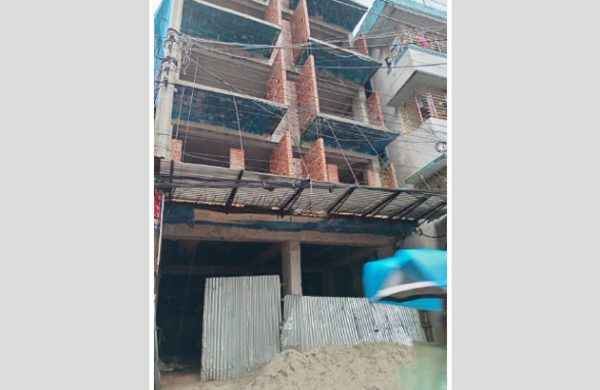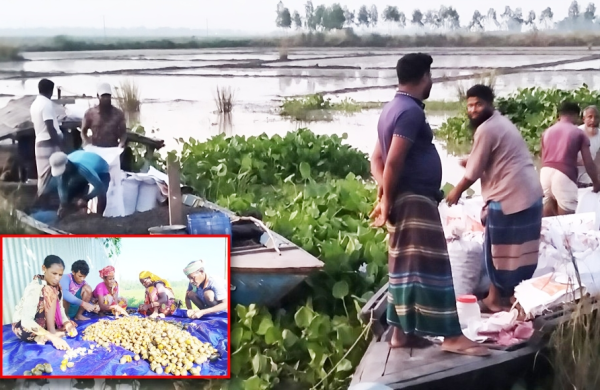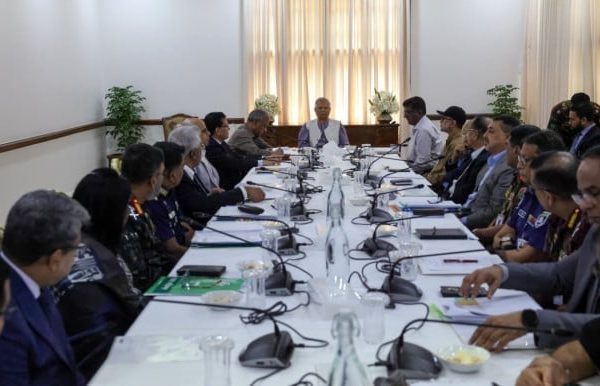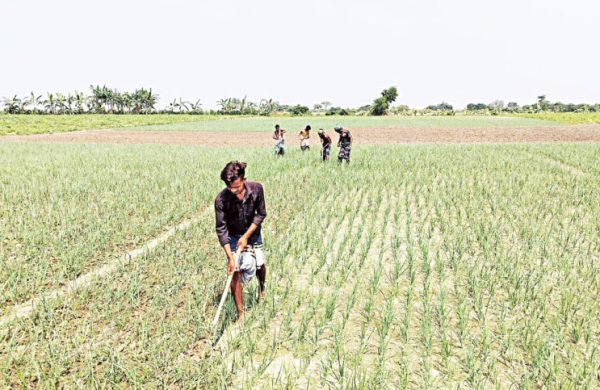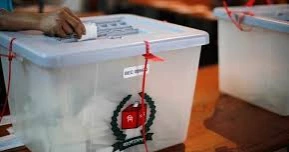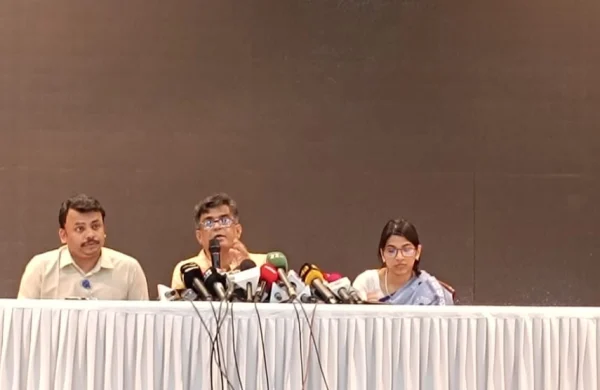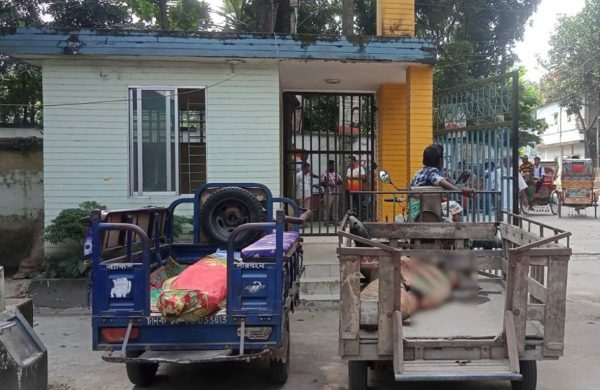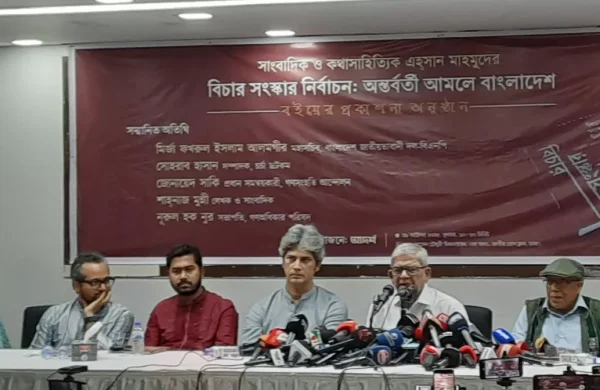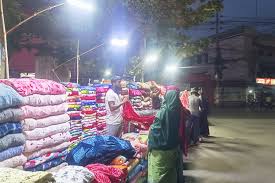Hasina refuses to apologize
- Update Time : Wednesday, October 29, 2025
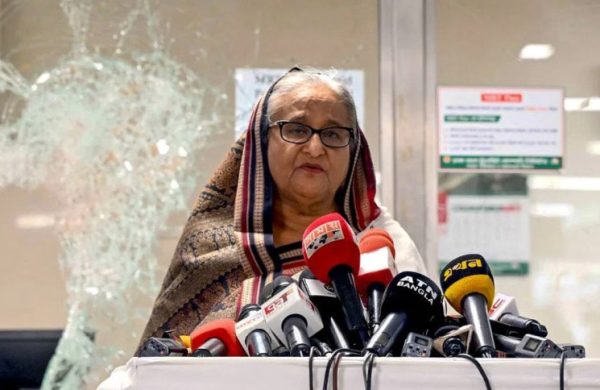
TDS Desk:
Ousted prime minister Sheikh Hasina has refused to apologise for the deaths of at least 1,400 people during the July Uprising in 2024, and said Bangladesh’s interim government would be disenfranchising millions without an inclusive election.
In interviews with Reuters, AFP, and the UK-based Independent — all of them published earlier on Wednesday the 78-year old former leader remained defiant in her exile in New Delhi, rejecting charges of crimes against humanity and describing her ongoing trial as “politically motivated.”
Prosecutors have sought death penalty for Hasina, accusing her of ordering lethal force against protesters in July and August 2024, when as many as 1,400 people were killed and thousands injured in what the United Nations described as Bangladesh’s worst violence since the 1971 Liberation War.
Investigations found that Hasina had personally authorised the use of lethal weapons. This newspaper had reported on a phone recording from July 18, 2024 where Hasina tells her nephew, former Dhaka South Mayor Fazle Noor Taposh, “I have given instructions, now I have given direct instructions; now they will use lethal weapons. Wherever they find them [protesters], they will shoot directly.”
Hasina claimed to AFP that the audio had been “taken out of context.”
“The charge that I personally directed security forces to open fire on crowds is bogus,” Hasina told AFP, while conceding that “some mistakes were certainly made within the chain of command.”
The International Crimes Tribunal, Bangladesh’s war-crimes court, is expected to announce the date of verdict on November 13. Hasina claimed that she was denied adequate time to prepare her defence.
However, she did not surrender before the court and has not engaged any legal defence.
“They’ve been brought by kangaroo courts, with guilty verdicts a foregone conclusion,” she told Reuters, adding that she would “neither be surprised nor intimidated” if she were sentenced to death.
She told the Independent that she “mourns each and every child, sibling, cousin and friend we lost as a nation,” but refused to issue a formal apology, arguing that the unrest was manipulated by her political rivals to topple her government. “I mourn the lives we lost, but I reject the false allegation that I ordered police to shoot demonstrators,” she said.
She accused the interim government, led by Nobel laureate Muhammad Yunus, of denying the Awami League the right to contest elections, calling the move “a dangerous precedent” that “robs the people of their voice.”
“The ban on the Awami League is not only unjust, it is self-defeating,” Hasina told Reuters. Her regime had summarily banned the Jamaat-e-Islami just days before her ouster in 2024.
“Elections without the direct participation of all major parties, including the Awami League, cannot be credible. You cannot disenfranchise millions of people if you want a political system that works,” she said.
It should be pointed out that Hasina has been accused of disenfranchising millions of voters through holding elections in 2014 and 2018 without the participation of opposition parties.
The Yunus-led interim government banned Awami League’s activities, citing security concerns and ongoing war-crimes investigations into senior party leaders. Any election held under these conditions would “sow the seeds of future division,” Hasina told AFP.
Her departure in August 2024, after crowds stormed her official residence, triggered reprisals against Awami League supporters nationwide.
In her AFP interview, Hasina rejected the accusations of crimes against humanity, insisting they were “not supported by any evidence” and that the tribunal was appointed by an administration that included her political opponents.
Her critics, including interim officials and human rights lawyers, say she bears “command responsibility” for the use of lethal force. Chief prosecutor Tajul Islam described her as “the nucleus around whom all the crimes were committed,” urging the court to impose the death penalty if found guilty.
“The next government must have electoral legitimacy,” Hasina told Reuters. “Millions of people support the Awami League, so as things stand, they will not vote.” She added that she was not asking her supporters to back other parties, but hoped “common sense will prevail” and her party would be reinstated before polling begins.
She told The Independent that the charges against her reflected “a campaign of political vengeance,” but added that she had “no intention of seeking asylum beyond India.”
Hasina said she continues to live “quietly and freely” in Delhi, occasionally walking through the city’s Lodhi Gardens, though she remains cautious given her family’s violent history — her father, Sheikh Mujibur Rahman, and three brothers were assassinated in a 1975 military coup. “For Bangladesh to achieve the future we all want, there must be a return to constitutional rule and political stability. No single person or family defines our country’s future,” she said.
Sheikh Hasina also said her priority now was “the welfare and stability of Bangladesh,” while her party explores legal and diplomatic avenues to contest its exclusion from the political process. “Yunus must reinstate the Awami League to give Bangladeshis the choice they deserve.”


